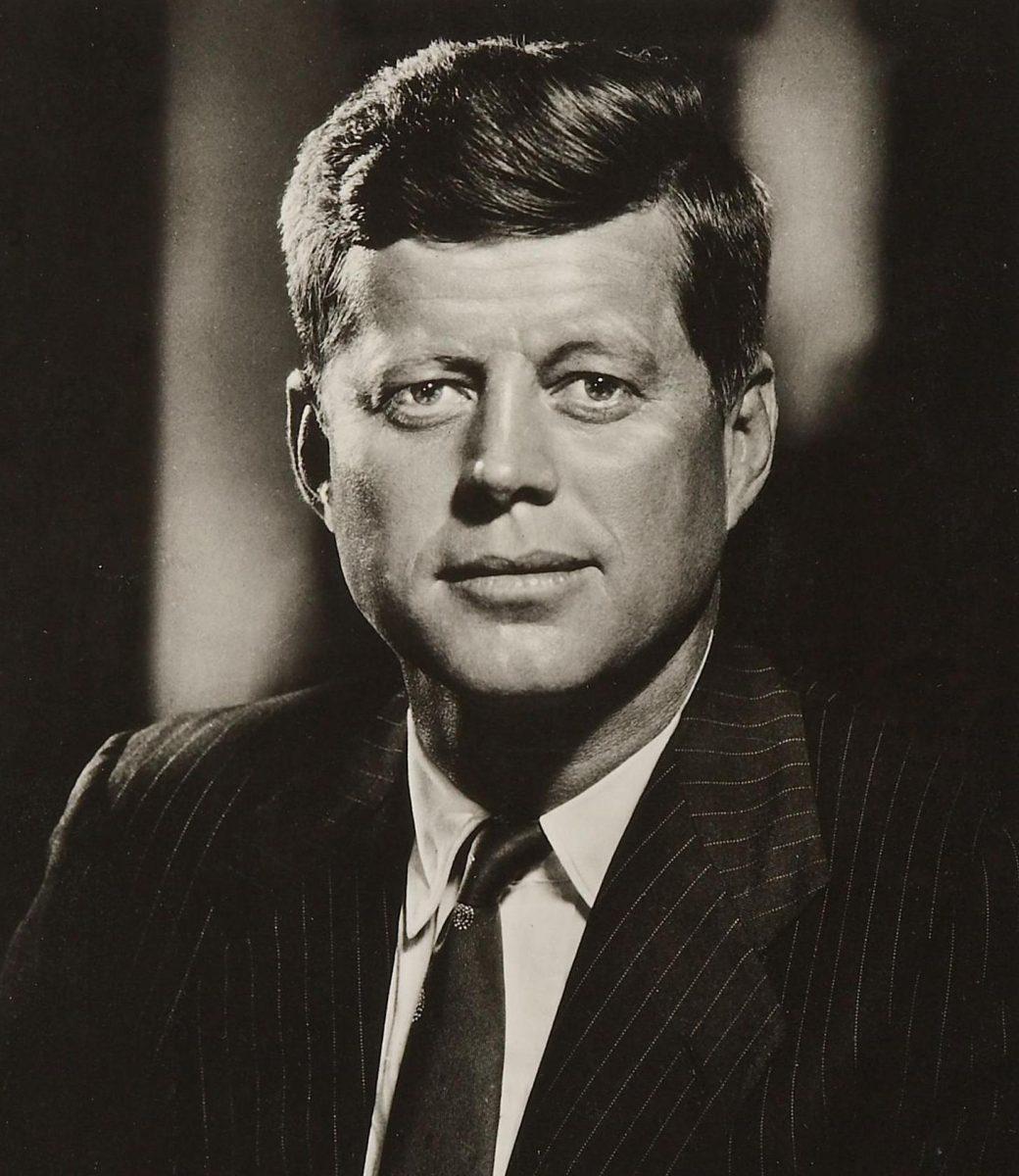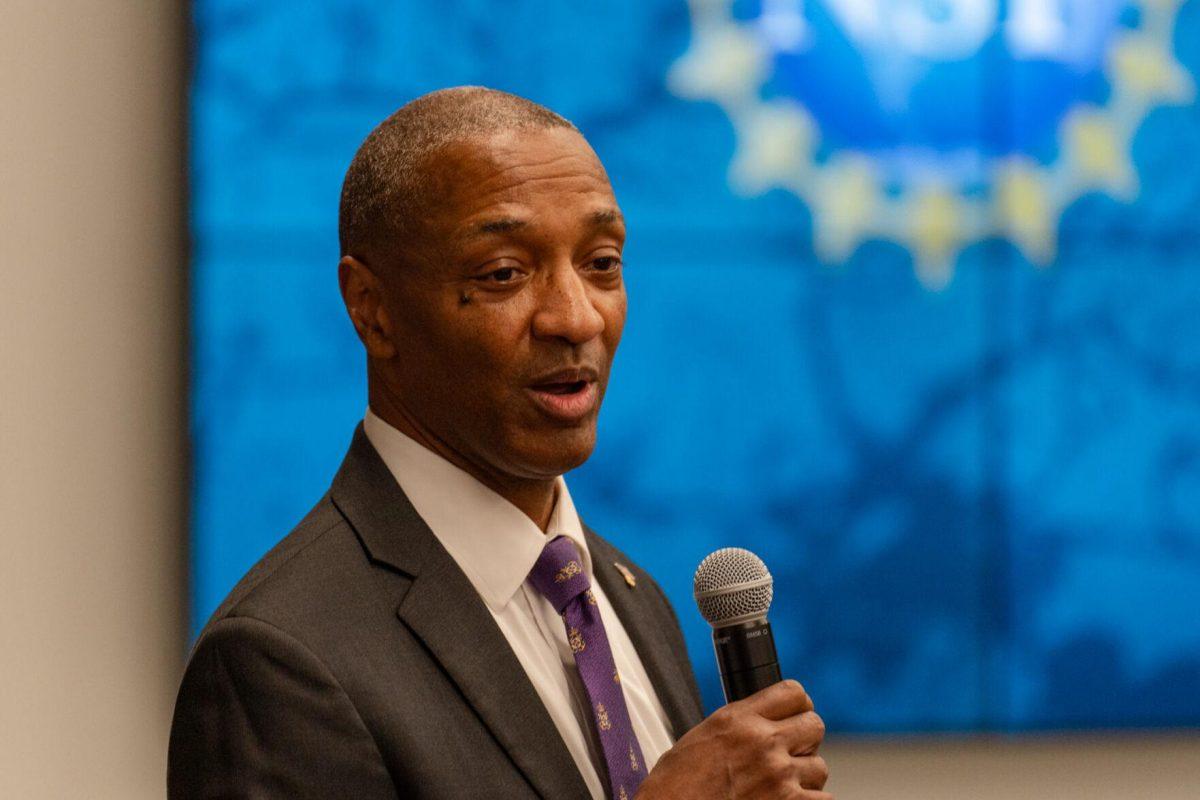The release of the new files about former President John F. Kennedy produced no new evidence for conspiracy theorists, but University history professor Alecia P. Long said the release of the new documents is much like the search for the Holy Grail, and will produce few answers to long-standing questions.
“People are convinced the ‘thing’ is going to be there.” Long said. “I don’t think it’s going to be there.”
The federal government released over 2,800 records complying with a 1992 law mandating the documents’ release, but kept roughly 300 files classified out of concern for U.S. National Security, law enforcement and foreign relations.
Long is an avid researcher of New Orleans history. The center of her latest project is a conspiracy about the assassination of Kennedy that evolved in New Orleans throughout the 1960s.
Long is currently working on a manuscript, tentatively titled “Crimes Against Nature: Sex, Violence and the Search for Conspirators in the Assassination of JFK,” but said she has tried not to answer any questions about who killed Kennedy.
“It’s just a really fascinating story and I’ve tried to make sense of it through the lens of thinking about the way gay people were conceived of and pathologized and also policed,” Long said. “I’m not trying to answer the ultimate questions about who killed JFK or who did not. I’m trying to use these documents to do something new and different.”
Long said her interest in New Orleans grew into a focused study about New Orleans District Attorney Jim Garrison’s investigation and the history of policing the sexuality of gay men for virtually all of the 20th century. Her first book “The Great Southern Babylon: Sex, Race and Respectability in New Orleans, 1865-1920” won the 2005 Julia Cherry Spruill Prize for the best book in southern women’s history.
“My scholarly interest has always been New Orleans,” Long said. “This particular case of Garrison looking into a potential conspiracy that began in New Orleans in the summer of 1963 that led to the assassination of JFK is a very big event in New Orleans in the 1960s.”
Long said she did not shy away from answering questions about the assassination out of fear, but because she does not believe they are answerable questions.
“I don’t want to dig through CIA and FBI documents for the rest of my life,” Long said. “I ultimately believe there are certain questions about the assassination that cannot be answered.”
Long said because people around the world saw the events of the assassination and the subsequent killing of the shooter, Lee Harvey Oswald on television, there have always been and may always be unanswered questions.
“It was, if I’m not mistaken, the first televised assassination certainly in the United States,” Long said. “So, people saw the events of the assassination over and over and over again.”
In 1973, The Warren Commission’s report tried to settle some of the unanswered questions by saying that Oswald was, in fact, the lone gunman, but Long said many people, including Garrison, were not satisfied with that explanation.
“From late 1964 on, the majority of Americans have believed that there was some kind of conspiracy in the president’s assassination,” Long said. “So, that was very fertile ground by the time Jim Garrison started his own investigation in 1966.”
The story of Garrison’s investigation is tenuous and filled with drama, Long said. On the weekend of the assassination in 1963, two men in New Orleans came up with potential stories of conspiracy. One of these men, Dean Andrews, called the FBI and the United States Secret Service and claimed Oswald visited him in the previous summer with five other men.
“These men impressed him as homosexual, but he only identified one of them by name,” Long said. “That was a man by the name of Clay Bertrand.”
Garrison decided that Bertrand was homosexual, and homosexuals sometimes changed their last names to use an alias, but not their first names, Long said. He and his team searched New Orleans and decided that Clay Shaw is Clay Bertrand.
“They have one eye witness who just sort of appears in late February, and under hypnosis and under the administration of sodium pentathol, he makes an dentification,” Long said. “Then Clay Shaw is arrested and charged as Clay Bertrand, co-conspirator with David Ferry dead and Lee Harvey Oswald dead.”
Long said Garrison’s theories have lasted because many people had doubts about the Warren Commision, and there is evidence Shaw lied during the trial.
“One of the arguments I would make is that’s not really surprising. This is a person whose entire sex life had been illegal for the entirety of his sex life,” Long said.
“He enters court in a very vulnerable state as a sex criminal and, according to the American Psychological Association, a person with a mental health problem.”
Shaw was eventually found not guilty, but after his death in 1974, Garrison continued to make a case for conspiracy with no one alive to argue against it.
Long said the most challenging part of researching JFK’s assassination is the sheer volume of documents. She said typically, a historian will read all of the secondary literature related to a research topic before they begin; however, in the case of researching JFK, there are over 2,000 books published on some aspect of the assassination.
“I will also say that I find the basic premise of many of [these books] to be problematic and would then note take those as seriously as historical studies,” Long said. “That is compounded by the overwhelming numbers of primary source documents. It’s huge, it’s in the millions.”
Long said the trouble with a lot of these documents is they are reporting what someone says.
“That’s documentary evidence of a kind, but just because someone said something does not make it so,” Long said. “So, all of these documents have to be read in two ways. They have to be read very critically and they have to be read on balance.”
Long said, from what she has reviewed, she believes Shaw was an innocent man.
“We live in a world where people ‘come out’ more or less routinely, but that was not the world Shaw lived in,” Long said. “So, you have to think about the events related to his prosecution and where they sit in time.”
LSU professor weighs in on release of JFK documents
By Abbie Shull
November 8, 2017
More to Discover









